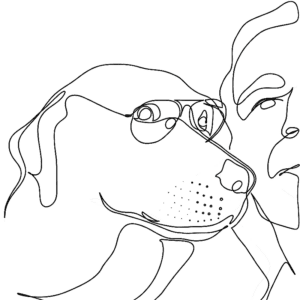By Fr. Benedict Groeschel, CFR
For you, Eternal Shepherd, do not desert your flock, but through the blessed Apostles watch over it and protect it always, so that it may be governed by those you have appointed shepherds to lead it in the name of your Son. (Preface I of the Apostles, Roman Missal, 2011.)
I spoke in another article about the role of “Confessors” in bearing public witness to the Catholic Faith. That is essential for the livelihood of the Catholic Faith in the world. Here, however, I want to speak about something even more fundamental; namely, the Church itself that makes public witness to the Faith possible. This Church which we call the “one, holy, catholic, and apostolic church” in the Creed is based upon a solid foundation of Apostleship which was how Christ, “Master of the Apostles,” set it up. Let me use an image to explain this.
When I was growing up I noticed someone building a house in my neighborhood and I distinctly remember asking my dad why it seemed that the workers were always busy but for a long time I saw no walls going up. He told me that about thirty percent of the work on any house or building has to be done underground before the workers can even begin to put up any walls or structures to make it look like a house. What a fascinating concept that was for me as a young kid, but it all made sense to me: without the moorings underground, the structure would topple with the first serious storm. It was my introduction to the idea of the importance of a “foundation,” and it taught me a few good lessons about the Church too.
This was Church Lesson #1: The Twelve Apostles are the actual foundation of the Church, according to the will of Jesus. Each of the Gospels contains the list of names of the twelve men He personally chose to be the foundation for the spiritual “structure” of the Church through all subsequent ages. With St. Peter as the living symbol of that foundation, He said: “You are Peter, and upon this rock I will build my church, and the gates of the netherworld shall not prevail against it.” (Mt 16:18) In other words, when describing the only structure He ever built for Himself, the Lord used an unmoving, solid substance—rock—to indicate how firmly it had been placed in history for its mission of handing on the Catholic Faith. He wanted there to be no doubt in anyone’s mind that His Church would remain immovable through all the storms of time.
Church Lesson #2 is an equally important lesson: The bishops are the successors of the Apostles throughout history. It is easy and perhaps even trendy to get into the business of criticizing bishops for not doing what we think they should do to lead the Church. Let me tell you, there is plenty of material for commentary, especially in these precarious times, but perfection is not part of the bishop’s job description. Bishops have a tough job, and I would venture to say that the vast majority of our bishops are good and holy men who are doing their best to keep their dioceses founded on the Rock of Peter. Let us not too easily criticize these chosen men who have the Twelve as their spiritual ancestry.
Church Lesson #3 is my favorite: despite even the colossal failures of church leaders, the Church will endure to the end of time precisely because of the grace of Christ. I love the humorous story that was once told about Napoleon who bragged to a certain Italian cardinal that he could destroy the Church without too much trouble if he wanted to. The cardinal responded somewhat dryly: “Your Highness, if eighteen centuries of bishops have not been able to destroy the Church, I daresay you will not have much luck.” Such is our faith in the apostolic foundation of the Church and the trust we have in the Holy Spirit’s guidance through the ages. Jesus has promised to be with His Church until the end of time (cf. Mt 28:20), and that promise is fulfilled in the guidance of our clergy in every day and age.
Now as for real living bishops and priests, there is nothing better we can do for the Church than to pray for them—and I mean on a daily basis. I am convinced that we don’t help them spiritually enough, but if we really believe in the Church, we will pray for these successors of the Apostles as diligently as we pray for our own families. This may be Church Lesson #4: the Church’s spiritual foundation stones thrive on our prayers. Without them, our Church would literally fall apart.
Prayer
O Lord and “Master of the Apostles,” give us always a profound spirit of gratitude for Your Church and Your Apostles who are its foundation both in time and eternity. Keep us always united with them and bless them in their mission of keeping the Faith alive through all the ages. We make this prayer in Your most holy Name. Amen.
[Excerpted from: Fr. Benedict Groeschel, Jesus and Mary: In Praise of their Glorious Names, Our Sunday Visitor, Inc.: Huntington, Indiana, 2012.]
